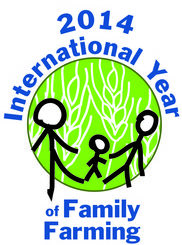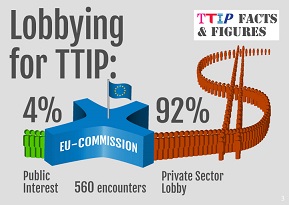
Thanks to the unexpected government shutdown in the US, this week’s Transatlantic Trade and Investment Partnership (TTIP) talks have been postponed. Nevertheless, the EU Trade Commissioner Karl De Gucht said that this “in no way distracts from our overall aim of acheiving an ambitious trade and investment deal”, though the duration of the US government shutdown remains unclear.
TTIP talks started in June of this year. This potential bilateral agreement would be the largest trade agreement in world history, were it to happen. Primarily, it is about streamlining and harmonising free markets in the EU and US. What this also means, NGOs and others fear, is that there will be a race to the bottom in legislation on both sides of the Atlantic. In other words, wherever there are stronger rules on labour, citizen/consumer protections or the environment, these laws will be seen as a trade barrier and will then be dropped. Invariably, farming and food will be part of this.
So food safety regulations on hormones, GMOs or nanotechnology may be streamlined; agricultural trade tariffs between the two areas reduced; public procurement liberalised and corporate research or marketing investments protected.
These talks are being conducted behind closed doors, however the corporate lobby machines have fully cranked into gear. A recent publication by Corporate Europe Observatory (CEO) outlines many of the areas where the interests of corporations may be prioritized over and above those of citizens.
In their publication, CEO states that TTIP is “a political project of the transatlantic corporate and political elite, which, on the unfounded promise of increased trade and job creation, will attempt to reverse social and environmental regulatory protections, redirect legal rights from citizens to corporations, and consolidate US and European global leadership in a changing political world order”.
In the US, the Institute for Agriculture and Trade policy have voiced similar concerns in a report published in August. In the US context, a fear is that recently introduced strengthened banking and financial services regulations will be dumbed down to the European level.
A specific fear expressed by Friends of the Earth is the potential extension of the the rights of corporations to legally challenge democratically made decisions through what is called the “investor state dispute settlement” procedure.
Meanwhile, Group de Bruges fear that whatever progress was made in the CAP reform negotiations may be undone by TTIP.
In the weeks ahead, ARC2020 will explore TTIP in more detail. For now see:
Friends of the Earth brief on TTIP
European Commission’s initial papers





